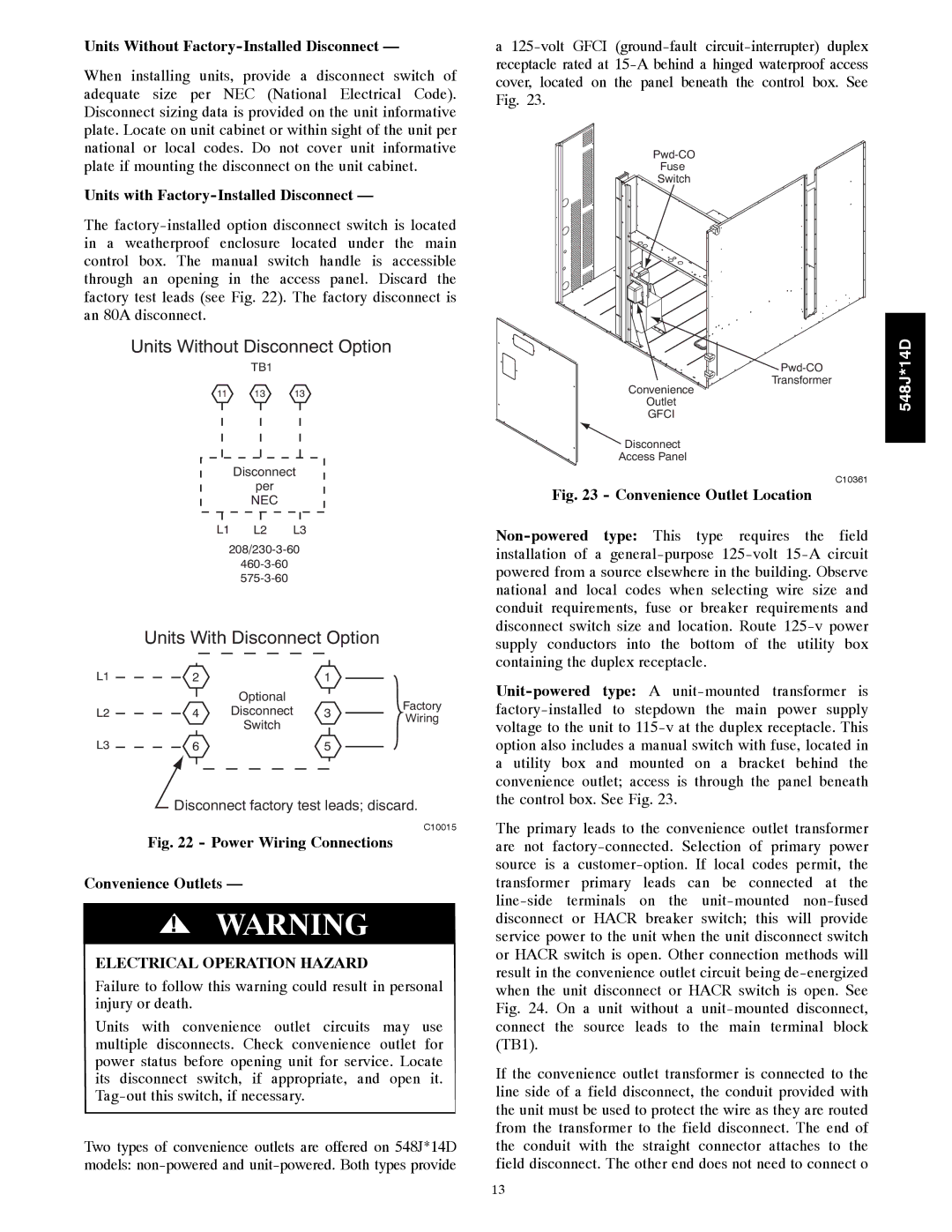548J*14D specifications
The Bryant 548J*14D is a highly efficient and versatile air conditioning unit designed to meet the varying demands of residential and light commercial applications. This model stands out due to its advanced engineering, energy-saving features, and reliable performance, making it an ideal choice for homeowners looking to enhance comfort without compromising on energy efficiency.One of the main features of the Bryant 548J*14D is its excellent SEER (Seasonal Energy Efficiency Ratio) rating, which signifies its ability to provide cooling while consuming less energy. Optimized for efficiency, this unit employs a high-efficiency compressor that adjusts its output based on cooling demands, allowing it to use only the energy necessary to maintain a comfortable environment.
The unit’s all-aluminum evaporator coil ensures durability and resistance to corrosion, contributing to its longer lifespan and consistent performance. Additionally, the Bryant 548J*14D incorporates advanced refrigeration technologies for maximum heat transfer efficiency. This technology not only enhances cooling performance but also improves overall system reliability.
A key characteristic of the Bryant 548J*14D is its Whisper Series technology designed for quiet operation. The low-noise design minimizes sound levels, allowing for unobtrusive cooling in residential spaces while still ensuring effective airflow and cooling capacity. This makes it particularly favorable for installation in bedrooms and other noise-sensitive areas.
Another noteworthy aspect of the Bryant 548J*14D is its compatibility with the MyBryant smartphone app, which enables homeowners to monitor and control their HVAC systems remotely. This connectivity offers convenience and helps to optimize energy usage, as users can adjust settings based on their schedules and preferences.
Furthermore, the Bryant 548J*14D is designed with a robustness that allows it to withstand diverse weather conditions, ensuring reliable performance even in extreme climates. The unit’s compact design eases installation in various settings, whether it's on rooftops, near walls, or on concrete pads.
In summary, the Bryant 548J*14D is a cutting-edge air conditioning unit that combines energy efficiency, quiet operation, and advanced technologies. With its robust construction, smart features, and reliable performance, it stands as a valuable solution for anyone looking to enhance comfort and save on energy costs in their homes or light commercial environments.

